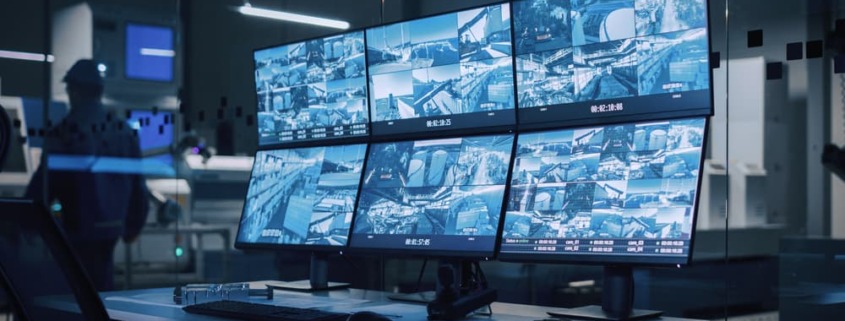How Long Do Security Cameras Keep Footage?
Are you curious about how long security cameras retain their valuable footage? Well, get ready to uncover the secrets of video storage in the world of surveillance! Security cameras have become essential for protecting homes, businesses, and public spaces as technology advances. But how long do these cameras hold onto the recorded footage?
In the ever-evolving landscape of security systems, the length of time that security cameras keep footage can vary. It depends on several crucial factors, such as the system’s storage capacity, camera settings, and the application’s specific requirements. From a few days to several months, the duration of video storage plays a vital role in investigating incidents, identifying culprits, and ensuring the safety of your surroundings.
If you’ve ever wondered how long you should store security camera footage, you’ll want to read along as we discuss which factors should be considered.
What Affects the Storage Duration?

I
How long does the average security camera store footage? Several things affect how long video footage can be kept. Below, we’ll review several factors that affect your footage duration.
Type of Camera System
One of the most important aspects in deciding storage lifetime is the type of system you choose.
Systems such as IP cameras, NVRs (Network Video Recorders), and DVRs (Digital Video Recorders) have different characteristics that determine how long they can hold onto recorded footage.
IP cameras have onboard storage capabilities, which means they can store videos straight onto an internal hard drive or SD card. NVRs and DVRs, on the other hand, require external storage solutions such as an external hard drive or a cloud service.
Storage Capacity
The storage capacity of your recording system is another important factor. The more storage space available, the longer you can retain your camera footage. Choosing a surveillance system with ample storage capacity ensures you can store footage for an extended period without running out of space. It’s essential to consider your storage needs and select a solution that meets the requirements of your surveillance setup.
Recording Quality
The quality of the recordings can also affect storage duration. Higher-quality settings, such as higher frame rates or increased bitrates, result in larger file sizes and require more storage space. Adjusting the recording quality to a level that balances image clarity and storage efficiency can help optimize your storage duration.
Amount of Motion and Activity in the Recorded Area
The level of motion and activity in the areas captured by your security cameras can impact storage duration. If your cameras monitor highly active areas with frequent movements, such as busy streets or crowded spaces, more storage space will be required to accommodate the increased footage. Conversely, cameras monitoring less active areas may have longer storage durations as less frequent recording occurs.
Legal and Regulatory Requirements
Depending on where you live, the regulations and laws of your jurisdiction may mandate the length of time that security camera footage must be stored. It’s important to research local regulations to properly set your system to meet specific requirements.
Industry Standards: How Long to Keep Camera Footage

Several things come into play when deciding how long security camera footage can be kept. Below are some industry standards to keep in mind when configuring your system:
Retail and Commercial Businesses
The recommended duration for storing camera footage varies for retail and commercial businesses. A common practice is keeping footage for 30 days. This duration allows companies to review past incidents, investigate theft or fraudulent activities, and provide evidence. Some businesses may extend the storage duration based on risk assessments or industry requirements.
Educational Institutions
Educational institutions typically follow guidelines recommending retaining camera footage for a specific duration. These guidelines vary by jurisdiction but often suggest keeping footage for a minimum of 14 to 30 days. Longer retention periods may be necessary for institutions with specific security concerns or legal obligations. Educational institutions must consult local regulations and their security team to determine the appropriate storage duration.
Financial Institutions
Financial institutions, such as banks and credit unions, have stricter security requirements due to the sensitive nature of their operations. The retention period for financial institutions’ camera footage is typically longer than in other industries. Financial institutions are commonly required to keep footage for 60 to 90 days, or perhaps longer, depending on the rules and internal procedures governing their activities.
Healthcare Facilities
Healthcare facilities, including hospitals, clinics, and nursing homes, handle sensitive patient information and require robust security measures. The retention period for camera footage in healthcare facilities often aligns with regulatory requirements, which can vary by jurisdiction. A standard practice in the healthcare industry is to store surveillance footage for 30 to 90 days for use in investigations, patient safety, and compliance checks.
It’s important to note that these retention periods are general guidelines, and specific circumstances may warrant longer or shorter durations. Factors like local regulations, pending legal actions, or internal policies can influence the retention period decision. Consult with legal advisors or industry professionals to decide your organization’s most appropriate retention period.
Elevate Your Security With MAX Video Security
How long security cameras keep footage does not have a straightforward answer. It depends on factors such as industry standards, legal requirements, and your organization’s specific needs. That’s why working in tandem with a reputable surveillance company is crucial.
By partnering with professionals who understand the intricacies of security camera systems, you can ensure that you adopt the best practices for storing camera footage. They will help you figure out how to use surveillance systems, how long to keep video footage, and set up a storage solution that fits your company’s goals.
At MAX Video Security, we understand the importance of reliable video surveillance systems for preserving security footage. For more than 15 years, we have provided advanced video security solutions to residential and commercial properties. Learn more about our services and discover why MAX Video Security is Indiana’s premier choice for surveillance solutions.




